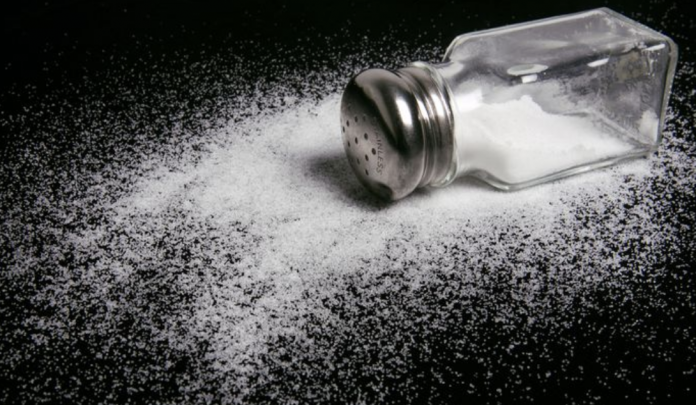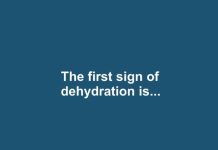1. Constant Thirst
If you find yourself perpetually thirsty, it could be a sign of excessive salt consumption. Sodium increases the concentration of solutes in your blood, which signals your body to crave more water to dilute the excess sodium and help maintain homeostasis. This mechanism ensures your organs and muscles function optimally, but excessive salt intake can overburden this system, leaving you feeling dehydrated despite frequent fluid intake.
2. Swelling
Salt is known for retaining water, but overindulging can lead to unwanted water retention, or edema. This condition is often visible as swelling in various parts of the body, such as the ankles, under the eyes, and in the hands and feet. The mechanism behind this is osmosis, where water moves into areas with higher concentrations of salt, leading to puffiness and bloating. Reducing your salt intake can help mitigate these symptoms and improve your overall comfort and appearance.
3. Aching Bones
Increased salt intake can lead to more frequent urination, causing the loss of essential minerals, including calcium. This calcium loss can weaken bones over time, leading to discomfort and an increased risk of osteoporosis, a condition characterized by brittle and fragile bones. Maintaining a balanced diet with controlled salt levels can help preserve bone health and prevent long-term skeletal issues.
4. Kidney Stones
Frequent urination, coupled with high salt and calcium levels in your urine, can contribute to the formation of kidney stones. These hard deposits form when there is an excess of certain substances, such as calcium and oxalate, which crystalize in the kidneys. By moderating salt intake, you can reduce the risk of these painful stones and promote better kidney function.
5. High Blood Pressure
Salt plays a crucial role in fluid balance, impacting blood volume and blood pressure. Consuming too much salt can lead to water retention, which increases the volume of blood in your vessels, thereby straining blood vessel walls and raising blood pressure. Chronic high blood pressure is a significant risk factor for cardiovascular diseases, including heart attacks and strokes. Monitoring and reducing salt intake is a key strategy in maintaining healthy blood pressure levels.
6. Difficulty Concentrating
High salt intake can damage arteries leading to the brain, affecting cognitive function and concentration levels. This vascular damage can reduce blood flow to the brain, impairing its function and increasing the risk of cognitive decline and conditions like dementia. By reducing salt consumption, you can protect your brain health and enhance your ability to concentrate and think clearly.
7. Cravings
The taste of salt can be addictive. Similar to sugar, salt can activate the brain’s pleasure centers, leading to cravings for salty foods. These cravings can create a vicious cycle of overconsumption, where you continually desire more salt to achieve the same level of satisfaction. Breaking this cycle by gradually reducing salt in your diet can help reset your taste preferences and reduce dependency on highly salty foods.
8. Frequent Headaches
A study by Johns Hopkins University found that people who consume 2500 mg of sodium daily have a 25% higher chance of experiencing headaches compared to those consuming only 1500 mg. High sodium levels can cause blood vessels in the brain to expand, triggering headaches. By lowering your salt intake, you can reduce the frequency and severity of headaches, leading to improved quality of life.
Conclusion
As much as salt enhances the taste of our meals, it’s crucial to consume it in moderation. These eight signs serve as valuable indicators that it might be time to reconsider your salt intake. By taking steps to reduce your salt consumption, you can prioritize your health while still enjoying the flavorful richness that well-balanced meals offer.
Making small changes, such as using herbs and spices for seasoning, choosing fresh over processed foods, and being mindful of salt levels in restaurant dishes, can make a significant difference in your overall well-being.
Source of the picture : fox news










